Symposia
Jaakko Seikkula och Eija-Liisa Rautiainen
Couple therapy for depression (English)
![]() /S1:1
/S1:1
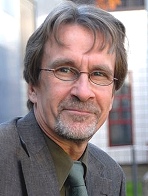 Depression
has become one of the most frequent mental health problems. The depressed state
of one family member affects the whole family. Hence there are good reasons to
invite family members to take part in the treatment of depressed individuals. In
Finland, couple therapy for depressed is developed by using dialogical,
reflective and co-creating ideas.
Depression
has become one of the most frequent mental health problems. The depressed state
of one family member affects the whole family. Hence there are good reasons to
invite family members to take part in the treatment of depressed individuals. In
Finland, couple therapy for depressed is developed by using dialogical,
reflective and co-creating ideas.
Most depressed patients come to the public mental health care. Yet there is not much research about depressed individuals based on everyday practice. Many studies are designed with the aim of constructing a context for studying the value of a specific psychotherapeutic method. These types of manual based therapies can give good outcome in constructed settings, but their external validity is often small; they do not tell us how this is going to work in real life. When you try to apply the manual based methods in everyday practice they have lost 20% of their efficiency.
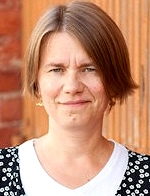 Dialogical
and Narrative Processes in Couple Therapy for Depression (DINADEP) from Finland
was a research project specifically aimed at research on processes and outcomes
of couple therapy within the public mental health care. Two professional family
therapists conducted the therapy as a team and that process was monitored during
two years. When compared to ‘treatment as usual’, which here means individually
centered treatment, the outcome of this study was very successful. 79 % of the
patients were remarkably improved with respect to their symptoms of depression,
and their improvement was faster, compared to the individual treatment.
Dialogical
and Narrative Processes in Couple Therapy for Depression (DINADEP) from Finland
was a research project specifically aimed at research on processes and outcomes
of couple therapy within the public mental health care. Two professional family
therapists conducted the therapy as a team and that process was monitored during
two years. When compared to ‘treatment as usual’, which here means individually
centered treatment, the outcome of this study was very successful. 79 % of the
patients were remarkably improved with respect to their symptoms of depression,
and their improvement was faster, compared to the individual treatment.
In our symposium we are going to present research outcome of this method and share our thoughts on how you can develop couple therapy for depressed people.
A short presentation of us:
Jaakko Seikkula, PhD, Professor of psychotherapy at University of Jyvaskyla,
clinical psychologist, family therapist.
My main involvement has been in developing family therapy and social networks
within psychiatry with psychotic patients and people with other severe
conditions. The power of a dialogical approach manifested itself in our
research. 85% of the patients could return to their work in full, and in a
follow up study after 5 years 80% lacked psychotic experiences.
Mikhail Bakhtin has been, and still is, a great inspiration for me.
Eija-Liisa Rautiainen, clinical psychologist, family therapist and trained
supervisor.
For almost 20 years I have worked in psychiatry with people who have mental
problems. I have a burning interest in developing and studying couple therapy
for depressive people.
Cathrin Kindel
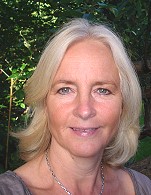 Evidence
or professional experience and the choice of the client (Swedish)
Evidence
or professional experience and the choice of the client (Swedish)
![]() /S1:2
/S1:2
Cathrin Kindel is a trained social worker and trained family therapist. She has been doing family work in the social services for twenty-five years. The last ten years she has spent within SISU, a resource centre in a Stockholm suburb. Cathrin writes about her symposium:
“Like my colleagues I have lately encountered the debate over evidence based practice, a debate that, in my opinion, has had too much bias towards one of the three sources of knowledge of evidence, namely research with randomization and manual based methods. My wish, for all of us working with families, is that we would help each other in making room for the two other sources of knowledge; our own professional experience and the clients’ views on what has been helpful to them.
As a practitioner I would like to, from my systemic base, display how intuition, humor, the personal, and even the private, has a place within the professional context and how my own life story affects the work that I am doing with the families. To be of help and raise hope in families living in social and economic struggle, we must meet them where they are. We need to be Jack-of-all-trades, using our fantasy and creativity and every now and then step out of the rut and do the unexpected.”
Søren Hertz
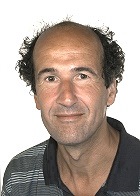 To
work with the biggest differences – the heritage from Bateson (Danish)
To
work with the biggest differences – the heritage from Bateson (Danish)
![]() /S1:3
/S1:3
Søren Hertz is a child and adolescent psychiatrist from Denmark. For many years he has been working as a family therapist. Since ten years he is running Psykcentrum - an agency for children and young people and their families in Hillerud outside Copenhagen. He is author of the book Børne- og ungdomspsykiatri – Nye perspektiver og uanede muligheder. It was published in 2008 and is coming in Swedish translation in the fall of 2010.
The symposium he is going to present at the conference he introduces like this:
“In recent years a change has taken place regarding that you no
longer talk about mental distress in children and young people, but about mental
illness and mental handicaps. In our modern society, phenomena are all too often
diminished and separated from each other. Not least this is noticed in the
individualization that permeates our society. The feeling of insufficiency and
at times total failure for many children and young people is a widespread
phenomenon. In this context the concepts mental illness/handicap appears. These
constructions fail to see that the children invite their environment. They fail
to see that descriptions are dependent upon the describing person. Exploration
of the invitations and unforeseen possibilities of development make other
demands on us concerning creativity, courage and attention to the significance
of interaction.
Diagnoses are chosen snapshots. When the diagnosis is experienced as attractive
it is important to contribute to processes that could be even more attractive.
Starting from a transdisciplinary tradition of science where “the whole is more
than the parts”, the possibility of the unexpected comes into sight. It turns up
when you work with the biggest difference, or more precisely, what looks like
the biggest differences: seriousness and incurable optimism, the behavior and
the invitation; what is not visible but is implicit and therefore brings
unspoken stories.
With a starting point in Bateson’s and Peter Lang’s ideas I am going to explore the marginal position; that the systemic ideas have become equal to good conversations, under the heading family therapy, which has implied that the decisive domains within this field has been assigned to the so called evidence based medicine.”
Veronica Hejdelind
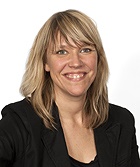 Sexuality
and gender in art (Swedish)
Sexuality
and gender in art (Swedish)
![]() /S1:4
/S1:4
Starting from the visual arts in history we are given a perspective of sexual identity and gender in the past and in the present. The seminar challenges the norms and values concerning sexuality, masculinity and femininity by reflecting the present time in history. Many of the presented pictures belong to the Swedish National gallery. The presentation gives examples of how you could use older visual art in contemporary conversation about sexual identity and gender. Through art you get a distinct picture of the variability in these concepts and occurrences, which gives both challenges and aha experiences.
Veronica Hejdelind is a curator at the national gallery and is responsible for the school activities of the museum. She has written a chapter on Sex in the arts and sexy pictures in a method manual Den röda tråden/The main thread published by LAFA (the Stockholm County Aids Prevention Programme). She is teaching the subject Sex in art and A historical perspective on male at the RFSU courses in Sexology and Andrology respectively. She is often invited as lecturer on sexuality in art.
Tryggve Balldin and Pia Kyhle Westermark
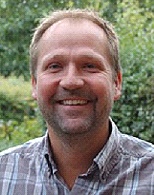 Therapeutic
work in a manual based model – heaven or hell? (Swedish)
Therapeutic
work in a manual based model – heaven or hell? (Swedish)
![]() /S1:5
/S1:5
In recent years the debate on manual based models has been intense. Rarely so many so many polarizing contributions, for or against, have been offered by so many people, without having the least experience of manual based practice. It is easy to be an armchair politician.
I intend to address both the advantages of working clinically in manual based practice, and also what challenges and limitations that are implied. From a client perspective I want to discuss the ethical dilemma of taking the decision of not doing manual based work. I want to challenge advocates of manual based models about side effects of manuals. I want to share clients’ experiences of manual based treatment.
Since eight years I have worked as a clinician and supervisor, being responsible for method adherence and responsible for implementation of manual based models. Concurrently I have done clinical work that has not been manualized.
So – heaven or hell? Welcome to become challenged, confirmed, called in question, and hopefully more unassuming.
Tryggve Balldin, trained social worker, certified FFT therapist, licensed psychotherapist specialized in family therapy and supervisor of psychotherapy. He is working at Familjeforum Lund and has participated in implementing MTFC in Sweden.
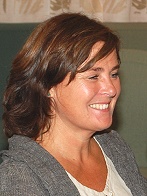 What
are the characteristics of effective intervention for young people with
behavioral problems? (Swedish)
What
are the characteristics of effective intervention for young people with
behavioral problems? (Swedish)
![]()
Antisociality in young people is a problem causing suffering all over the world. Of the young people placed in institutional care in Sweden, half of them are placed on account of behavior problems. Today we know that young people with behavior problems are a heterogeneous group with a variety of problems and are difficult to treat. Studies of populations that are monitored from childhood to adult life have shown complexity in the development of behavior problems and contributed to the knowledge about different factors of risk and protection.
MTFC (Multidimensional Treatment Foster Care) is a manual based intervention for young people that has been developed as an alternative to institutional care for young people with behavior problems. The method is developed in the USA and is an example of a treatment method the development of which is anchored in a long history of empirical studies.
My lecture is going to deal with treatment of young people with behavior problems. From a Swedish evaluation study of MTFC I present research results shown by the treatment method. The results are published in three international articles.
Pia Kyhle Westermark is a trained social worker and PhD in social work. At present she is working at the National board of health and welfare, among other things with development of different evaluation instruments for implementation in the Social Services.
Pravin Israel and Magnus Ringborg
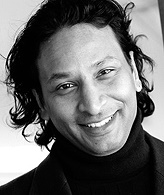 Attachment
Based Family Therapy (ABFT), a new method for meeting depressed and traumatized
adolescents. (English)
Attachment
Based Family Therapy (ABFT), a new method for meeting depressed and traumatized
adolescents. (English)
![]() /S1:6
/S1:6
Depression, suicidality and trauma are among the major problem areas within adolescent psychiatry. The scientifically tested method present to meet those situations, whether in psychotherapy or pharmacology, have shown mediocre outcome. Thus there is a need for new methods. It is surprising how rarely family therapy has been seen as a possible answer to this clinical challenge. However, Guy Diamond and his colleagues in Philadelphia have done a pioneering work. In a number of randomized studies they have tested a family therapy method that is based upon structural family therapy and informed by attachment theory. Pravin Israel in Norway has carried out a randomized study of ABFT with depressed adolescents and is continuing this research. Also in Gothenburg there are efforts to search into this way of working with traumatized young people. Magnus Ringborg is working to introduce the method in adolescent psychiatry at large. We think that this subject is of great relevance for family therapists today for the following reasons:
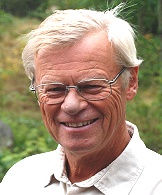
![]() ABFT has emanated from the classical roots of structural
ABFT has emanated from the classical roots of structural
family therapy.
![]() It is
directed towards a big and important clinical group where
It is
directed towards a big and important clinical group where
we lack reliable methods.
![]() As the
professional community here is well-informed in
As the
professional community here is well-informed in
classical family therapy as well as attachment theory, ABFT
should fit in the Nordic clinical setting.
Metoden kännetecknas av följande:
The method is distinguished by the following:
![]() It is manualized and directed to short term
treatment.
It is manualized and directed to short term
treatment.
![]() It starts with separate sessions for parents
and youngsters to build alliance.
It starts with separate sessions for parents
and youngsters to build alliance.
![]() It is focused on attachment injuries and by
staging the dialogue between parents and children
It is focused on attachment injuries and by
staging the dialogue between parents and children
a work of repair is enabled.
![]() In later phases the therapy focuses on the
young person’s competency, autonomy and return
In later phases the therapy focuses on the
young person’s competency, autonomy and return
to a normal social life.
Pravin Israel, Dr. psychol, has studied in India, US and Norway. His doctoral thesis is titled “Parent and child factors related to treatment outcome of children's psychosocial problems” 2006. Together with Guy Diamond he has published ”Tillknytningsbasert familieterapi for deprimert ungdom”, Fokus på familien 1/2009
Magnus Ringborg is licensed psychologist and licensed psychotherapist. He is working as supervisor and teacher in family therapy. In 2009 he published ”Förändrande familjesamtal”, Mareld/ Studentlitteratur.
Reidun Hafstad och Haldor Övreeide
Parent focused work with children (Norwegian)
![]() /S2:1
/S2:1
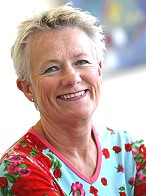 Children’s development and quality of life is dependent on an
effective dialogue/interaction with at least one adult, who takes on a
responsible parental role. This creates particular ethical challenges for
parents but also for other adults, that the child is dependent on, at school and
in the network at large.
Children’s development and quality of life is dependent on an
effective dialogue/interaction with at least one adult, who takes on a
responsible parental role. This creates particular ethical challenges for
parents but also for other adults, that the child is dependent on, at school and
in the network at large.
In family therapy practice these conditions of development are important to attend to. We must understand children’s ways of thinking and how they need to develop their dialogical competence, and understand that they are in need of their parents. Furthermore we should acknowledge the unequal power relationship between the dependent child and the adult. The parents’ ethical challenges also become the professional’s ethical challenges as we observe, or might experience, that children suffer or that they are not given priority. The triad between the professional, the child and the parent makes an important unit of analysis, and that triad we can use as a starting point to assist the development of the child.
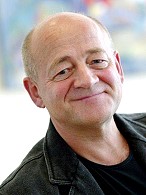 At
this symposium we are going to analyze as well as give methodological
suggestions /ideas/ in assisting parents with ethical challenges in how to give
their children good conditions for development among other things. For example,
we can help children to express themselves, so that their parents can understand
them better.
At
this symposium we are going to analyze as well as give methodological
suggestions /ideas/ in assisting parents with ethical challenges in how to give
their children good conditions for development among other things. For example,
we can help children to express themselves, so that their parents can understand
them better.
Reidun Hafstad and Haldor Øvreeide are clinical social worker/family therapist and specialist in clinical psychology respectively. They work in a private practice connected to Institutt for familie og relasjonsutvikling in Os, close to Bergen in Norway. In parallel with their clinical practice they have worked with method development, particularly aimed at optimizing the relationship between parents and children for the development of the child. Supervision from video analysis for parents and other adults has been an important tool. The triangular conversation with parents and children based on children’s dialogical competence is a central characteristic of their work. Reidun and Halvor have written and contributed to several books on that theme and teach and supervise in a number of Nordic cities.
Lars Dencik
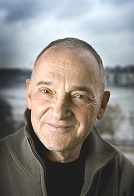 Relationships
in our time. The meaning of postmodern patterns of interaction and new family
constellations for the social conditions of the individual (Swedish)
Relationships
in our time. The meaning of postmodern patterns of interaction and new family
constellations for the social conditions of the individual (Swedish)
![]() /S2:2
/S2:2
Lars Dencik is a professor of sociology at Roskilde University. He was born in Sweden and is the father of two sons. In 1974 he came to Roskilde after having been professor in international studies focused on peace and conflict research at University of Konstanz in Germany.
At Roskilde University he has established a centre for Child and Family research. In addition he has been research leader of several international research projects focusing implications of the modern development in society for the upbringing and family relationships of children.
Lars Dencik has been a member of The Scientific Board of the
International Peace Research Association and of the Swedish governmental
commission concerning children’s rights. Furthermore he has belonged to the
scientific advisory board of the Swedish Board of Health and Welfare and
Scientific committee for rehabilitation and research center for victims of
torture in Denmark.
He has lectured at many different universities in Europe and the US and has held
guest professor chairs in Department of Psychology and School of Social work at
Hebrew University in Jerusalem, the Department of Social Psychology at Helsinki
University and Faculdad de Psikologia Universidad de Buenos Aires.
His latest books published in Danish are
Mennesket i postmoderniseringen – om barndom, familie og identiteter i opbrud
(Billesö & Baltzer 2005)
Familie og börn i en opbrudstid, tillsammans med Per Schultz Jørgensen
och Dion Sommer (Hans Reitzels förlag 2008)
One of his latest works in Swedish is Judendomen i Sverige – en sociologisk belysning (Swedish Science press 2007).
Sonja Haas
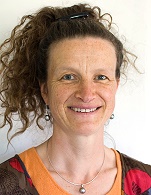 De reflekterande trialogerna och dess betydelse i mötet med
människan. (Svenska)
De reflekterande trialogerna och dess betydelse i mötet med
människan. (Svenska)
![]() /S2:3
/S2:3
Tillsammans med Judit Wagner har jag under fler år undersökt möjligheterna och betydelsen av trialogiska samtal i vårt samarbete. Med min utgångspunkt i kroppens inre och yttre samtal, dess intryck och uttryck har reflekterande processer varit länken och språklig motsvarighet till min yrkesbakgrund.
Jag kommer att presentera vårt arbetssätt med sin bas i familjeterapin och i systemteorin, med inspiration hämtad från Tom Andersen, Jaakku Seikkula, Gregory Bateson, och filosofin.
Våra trialogiska samtal spänner sig från möten med enskilda klienter till grupper där kroppens språk tar plats som självklar del i terapiprocessen. Arbetet väver samman olika yrkesområden och är ett sätt att möta människan i flera dimensioner och sammanhang.
Sonja Haas är aukt feldenkraispedagog, leg sjukgymnast och familjeterapeut och jobbar i egen verksamhet inom sjukvården i Kalmar län.
Nanna K. Sigurðardóttir
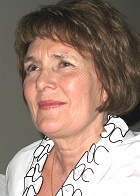 The gift of time – Children with cancer in the family.
(English)
The gift of time – Children with cancer in the family.
(English) ![]() /S2:4
/S2:4
Nanna Sigurðardóttir was born in 1947. After high school exams in Akureyri in the Northern part of Iceland she took training as elementary-school teacher. She graduated from School of Social Studies at the University of Odense, Denmark. She took a Master’s degree of Social Work at Massachusetts, US. Furthermore she has specialist education in family therapy and supervision. Nanna is an experienced teacher and has done research and clinical work with families within social services and in health care.
Presently she is employed by the Oncology centre at Landspitali – the University clinic of Reykjavik and teaches at the medical faculty of the Iceland University.
She describes her workshop as follows:
I am going to talk about joy and sorrow. I am going to talk about the events in life that have not changed so much in family relationships. We are born and we die. Hopefully a number of things happen between those two moments.
The work with cancer and cancer diseases brings incredibly many challenges for professionals. Cancer has a bad “reputation” in our society and is associated with suffering and death. Cancer metaphors are time and again used in discussion to signify an unwanted phenomenon that spreads beyond control. Plenty of people have come in contact with cancer in their own experience or with family members. Even little children say cancer when they name a dangerous disease.
The fact is that nowadays many forms of cancer have a much better prognosis than in the past, and today many people are given a long life after a diagnosis of cancer. Particularly in the Nordic countries we have an excellent documentation of these facts and should have good opportunities for another kind of dialogue about cancer as a long term disease in our society.
Children who are members of a family with cancer, are faced with an extra task in addition to their normal development. In our many-faceted patterns of family life, it might be that the child is the only one in the family who has a parent who is affected by cancer. Also there are situations where children might have lived for ten to fifteen years with parents who have been cured from cancer, but carry an anxiety that they will be afflicted again. The anxiety and worry is there as an unwanted and invisible “guest” at the dinner table. The “guest” is perceptible in puzzling glances and vague comments about the future.
The two sisters joy and sorrow are so naturally present in children’s minds and patterns of reactions. They know both of these feelings and have many expressions for them. Children are creative and find several sides of the same thing, “solutions” that are integrated into the family helping them to embrace life.
Gerd Elliot och Tommy Waad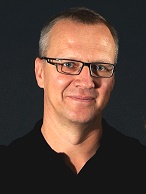
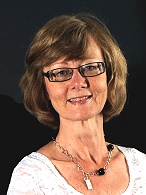 EFT – Emotionally Focused Therapy for Couples. (Swedish)
EFT – Emotionally Focused Therapy for Couples. (Swedish)
![]() /S2:5
/S2:5
EFT is a structured short term therapy for couples who want to restore their couple relationship. It includes nine steps in three levels. The therapist helps the couple to understand in what way both of them contribute to, and are involved in, a pattern of interaction that is creating frustration and distance. The EFT work is both interpersonal and intrapsychic. The estimated number of sessions is between twelve and twenty.
EFT created and developed by Dr. Sue Johnson, Ottawa, starting in the nineteen-eighties. Sue Johnson is a professor in clinical psychology at the University of Ottawa, head of Ottawa Couple and Family Institute and International Excellence in Emotionally Focused Therapy, ICEEFT.
EFT has theoretical roots in systems theory and existential theory and an important starting point in attachment theory. The adult love relationship is seen as an attachment relationship with many similarities with the relationship between the small child and the parent. When the adult couple develops problems in their relationship, in EFT it is seen as an attachment related problem. The adult love relationship requires a safe emotional experience where accessibility, acceptance and response are central concepts. Couples who have relationship problems have developed negative patterns of interaction that are constantly repeated. The interaction gets more constricted and so does the perception of oneself and the other. The feelings in the relationship are formed by the interaction, which means that all parts of the relationship are negatively affected, from communication to sex. A good couple relationship is significant for the wellbeing of the children in the family. Both of us have long experience of working with dysfunctional families. Working with EFT means being able to help many children and young people to an upbringing in an emotionally well functioning family, a very meaningful aim.
A short presentation of us:
Tommy Waad:
I am a licensed psychotherapist specialized in family therapy and a certified
Gottman-therapist. My earlier work has been in child and adolescent psychiatry
in Lund, Sweden. I have many years of experience as family counselor and couple
therapist, both in the public sector and in private practice.
www.relationscentrum.se
Gerd Elliot:
I am a trained social worker, authorized family counselor and at present in
licensing psychotherapy training with psychodynamic focus in Lund, Sweden. I
have worked with the Social Services for many years with assessment of
children’s home conditions and developing methods for evaluation and treatment
work. I have long experience of family law and collaboration conversations with
separated parents. Since 1998 I have worked as a family counselor and since 2007
as a couple therapist in private practice.
www.relationsradgivning.se
Susanne Bargmann
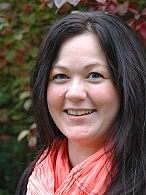 Good
bye to the Jante law – a new focus in the work with children, young people and
families (English)
Good
bye to the Jante law – a new focus in the work with children, young people and
families (English)
![]() /S2:6
/S2:6
In Denmark our way of thinking is often marked by the Jante law – a bunch of dictates with the purpose of ensuring that nobody steps forward to assert themselves and nobody tries to be better than anyone else, aimed at making sure that nobody is going to step forward and be assertive and nobody should try to be better than anybody else. This way of thinking might serve a purpose when it comes to relating to others, but, in other areas it can be limiting and block development.
In this symposium I am going to take a few steps away from the Jante law and turn my focus towards how we as therapists can give ourselves the possibility to continually becoming more skilful in our work. Focus is placed on giving our clients the best possible treatment, and also use the limited resources available to the best possible benefit for children, young people, and families.
The symposium is going to show how session-by-session client feedback is our first step towards becoming more skilful. I am going to talk about a specific method of client feedback (ORS, Outcome Rating Scale and SRS, Session Rating Scale) that works both as a clinical instrument and also can be used to measure the effect of the treatment. I am going to offer useful examples from theory and practice on how I have used session-by-session feedback with children, young people and families and with organizations that offer family treatment. The symposium is going to give practical advice to therapists and organizations on how they can focus on feedback, to receive feedback and thereby gain skills.
Susanne Bargmann is a psychologist from Denmark. Since nine years she has been working with children, young people, and families in different agencies. At present she has a private practice in Hørsholm, Denmark. Susanne is linked to "The International Center for Clinical Excellence" where she is collaborating with Ph.D. Scott D. Miller. She has written several articles and contributed to books about working with feedback in various contexts.

